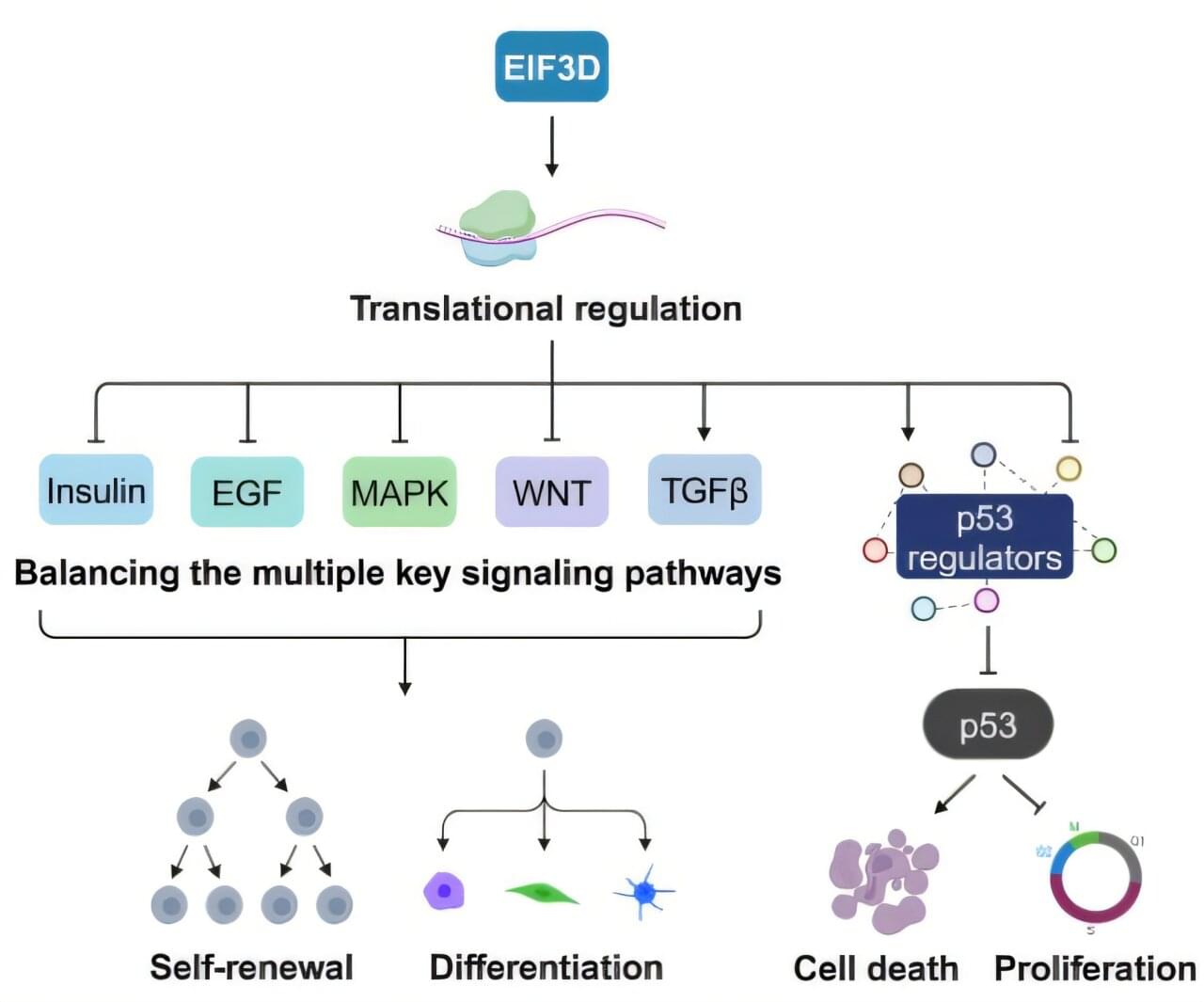A team of CiRA researchers has uncovered the crucial role of EIF3D—a protein translational regulator—in primed pluripotency. The research is published in the journal Science Advances.
According to the central dogma of molecular biology, information flows from DNA to RNA to protein. While much is known about pluripotency —the ability to differentiate into any other cell type in the body and to divide indefinitely—in terms of transcriptional and epigenetic regulation, as well as signal transduction, how protein translation ties these control mechanisms together remains largely underexplored.
To identify genes important for maintaining primed pluripotency—a state poised for differentiating into various cell types in the body, the research team, led by Associate Professor Kazutoshi Takahashi and Assistant Professor Chikako Okubo, began with a genome-wide genetic screen based on CRISPR interference (CRISPRi) that systemically reduces the expression of every single gene in the genome of a pluripotent stem cell (PSC) line.
